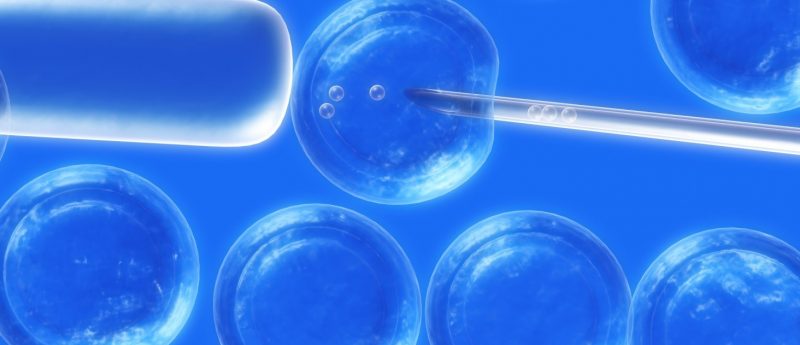Netrin-1: the 5th key reprogramming factor

A collaborative research team from the Inserm institute in Lyon (France) finds an additional transcription factor necessary for the effective production of induced pluripotent stem cells
Since 2006, research has succeeded in generating induced pluripotent cells (iPSCs) from specialized adult cells, with huge potential applications for regenerative medicine. However, as of yet, the process has still not been perfected. Two teams of researchers from Inserm (Lyon, France) have discovered a molecule that may favor the production of these induced stem cells.
Reprogramming an already specialized cell into a stem cell is a scientific feat coveted by many researchers. In 2006, the Japanese scientist Shinya Yamanaka first succeeded in producing iPSCs, by a process requiring the introduction of four genes into differentiated cells. iPSCs are capable of becoming any type of cell from the human body which is characteristic only found in human embryonic stem cells.
iPSCs represent a promising advance. With their help, it should ultimately become possible to replace diseased organs with new organs derived from the patient’s own cells, thereby eliminating all risks of rejection. These would also circumvent the ethical problems raised by the use of human embryonic stem cells.
Despite this success, cell reprogramming is not yet fully controlled. It is limited by certain constraints such as apoptosis (programmed cell death), which restricts the number of cells produced. In this context, Fabrice Lavial’s team, in collaboration with Patrick Mehlen’s team, sought to identify new regulators of the genesis of iPSCs.
With this objective, the researchers directed their attention to the factors affected by the four inducing genes involved in the initiation of reprogramming. From these they selected those known to have a role in apoptosis with a level of expression that varies over the course of reprogramming. The screening process revealed one molecule in particular: netrin-1.
Netrin-1 is a protein naturally secreted by the body. Interestingly, it is able to prevent apoptosis, among other functions. In the first few days of mouse cell reprogramming, the researchers observed a strong decrease in netrin-1 production. This deficit limited the efficacy of the process. The researchers subsequently tested the artificial addition of netrin-1 to compensate for its insufficiency in the early phases of reprogramming. This resulted in an increased quantity of iPSCs reprogrammed from mouse cells — a finding that was also observed when netrin-1 was added to human cells, leading to a 15-fold increase in iPSCs.
From a therapeutic point of view, it was important to determine whether this treatment affected the quality of cell reprogramming. “According to several verifications, netrin-1 treatment does not seem to have any impact on the genomic stability the iPSCs or on their ability to differentiate into other tissues,” explained Fabrice Lavial, Inserm Research Fellow.
The team continues to examine the effects of netrin-1 on reprogramming and is looking to gain a better understanding of the mode of action of this molecule in stem cell physiology.
Sources: Ozmadenci D, Féraud O, Markossian S et al. Netrin-1 regulates somatic cell reprogramming and pluripotency maintenance. Nature Communications, doi:10.1038/ncomms8398 (2015) (Epub ahead of print); Inserm press release: http://presse-inserm.fr/en/production-of-ips-cells…